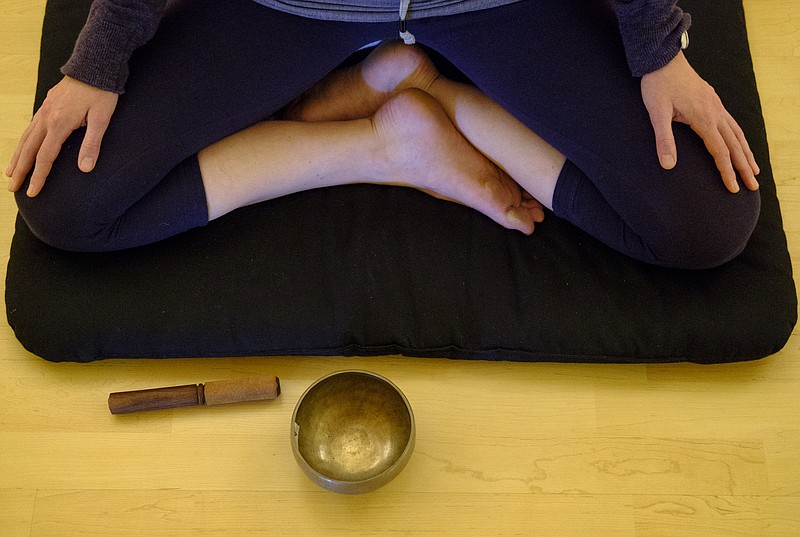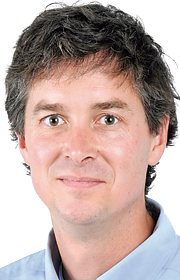Some years ago Dr. Herb Barks, the longtime Baylor School headmaster, had just been diagnosed with prostate cancer. His wife, Carol, also was sick - acute lymphoblastic leukemia - and about to begin chemotherapy. Doctors weren't sure she would live to see the end of her treatments.
It was a dizzying, terrifying time. Barks needed help, advice, something to hold onto.
He called Kittisaro, a former student who left a Rhodes Scholarship to become a Buddhist monk. At the time, Kittisaro was in Africa, having just finished a yearlong silent retreat.
"Kittisaro," Barks began, "I've got prostate cancer. Carol has acute lymphoblastic leukemia and isn't expected to live."
A long pause.
Another long pause.
"Your teacher has arrived," Kittisaro answered.
Earlier this month, school began for thousands of Hamilton County students and their families.
But what if we all expanded our idea of education?
What if we saw all of life as our teacher?
The sicknesses. The joys. The traffic jams and flat tires. The pleasures and pains. Even cancer. Imagine if we learned to respond, even through gritted teeth and tears, to the moment before us: This can teach me something.
"If your teacher has arrived, you can't be a victim," Barks likes to say.
In this month's "Dear Monk" column - it will be the last in our series - meditation teachers Kittisaro and Thanissara discuss the ways in which we can learn from life.
It's textbook wisdom: The pain of life won't fully define us.
Life is the ultimate teacher, always offering us lessons about ourselves and what it means to be human.
View other columns by David Cook
And yes, both Carol and Herb Barks are healthy and cancer-free.
Dear Monk, how can life be our teacher?
Are we willing to be interested in what is unfolding within and around us?
Nature is always teaching us: the ever-changing weather, the turning of the seasons, the dawn and the dusk. Our body, too, with its rhythms and cycles of sickness and health, feeling good or feeling ill, being energetic or exhausted, is also part of nature, the natural order of this mysterious life.
By respecting an ordinary moment as our teacher, a revelation can take place right in our own heart.
That includes the circumstances that are bothering us and the feelings we don't like.
If we shift our perspective a bit, we can open to the possibility that these very sensations that I don't want are teaching us. If we really were in the presence of our teacher, wouldn't we respect him or her, and listen carefully? We'd be open and receptive.
Can we practice being open to life, to the actual experience right now of sitting, feeling, having thoughts and concerns, finding ourselves in various surroundings? Can we honor this moment as our teacher? Can we, even for a few minutes, be patiently mindful of the sounds around us, allowing their actuality to inform us?
We can be with difficult sensations and know, "This is pain. Pain is like this."
We also notice if there is a compulsive desire to fix what is disagreeable, including other people! We can learn from our struggles, from pain, difficult people, challenging situations.
We learn patience, kindness, wisdom, and we also learn to have more equanimity, knowing everything is changing.
Although noticing that things are constantly changing might seem mundane and obvious, to persistently reflect on this truth is life-transforming. Not knowing that the nature of things is to change, we grasp at pleasure and resist pain, seek for praise and recoil at criticism, clutch at health and dread sickness. Even when things go well, when we cling to that state, the inevitable change leads to despair and a new round of seeking.
When we let life teach us, we'll realize pleasure and pain are natural, just as are praise and blame, success and failure.
Our Thai meditation teacher Ajahn Chah said: When you look for certainty in that which is uncertain, you are bound to suffer.
Once we realize we are pushing something away or desperately grasping at something hoping it will remain, we are fighting life.
When we allow life to teach us its impermanent perfection, in letting things be, we realize the underlying peace of the heart.
David Cook writes a Sunday column and can be reached at dcook@timesfreepress.com or 423-757-6329. Follow him on Facebook at DavidCookTFP.

